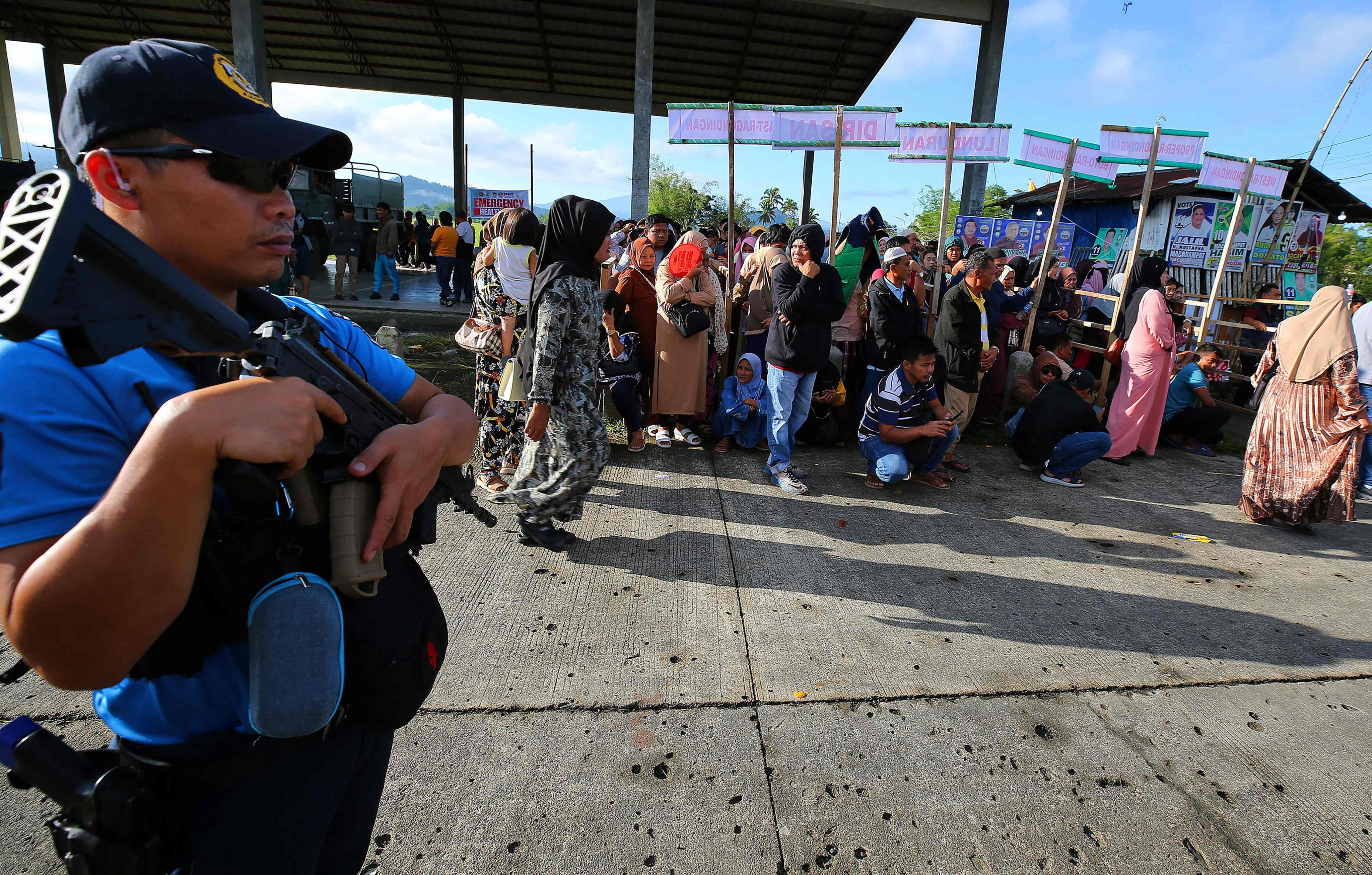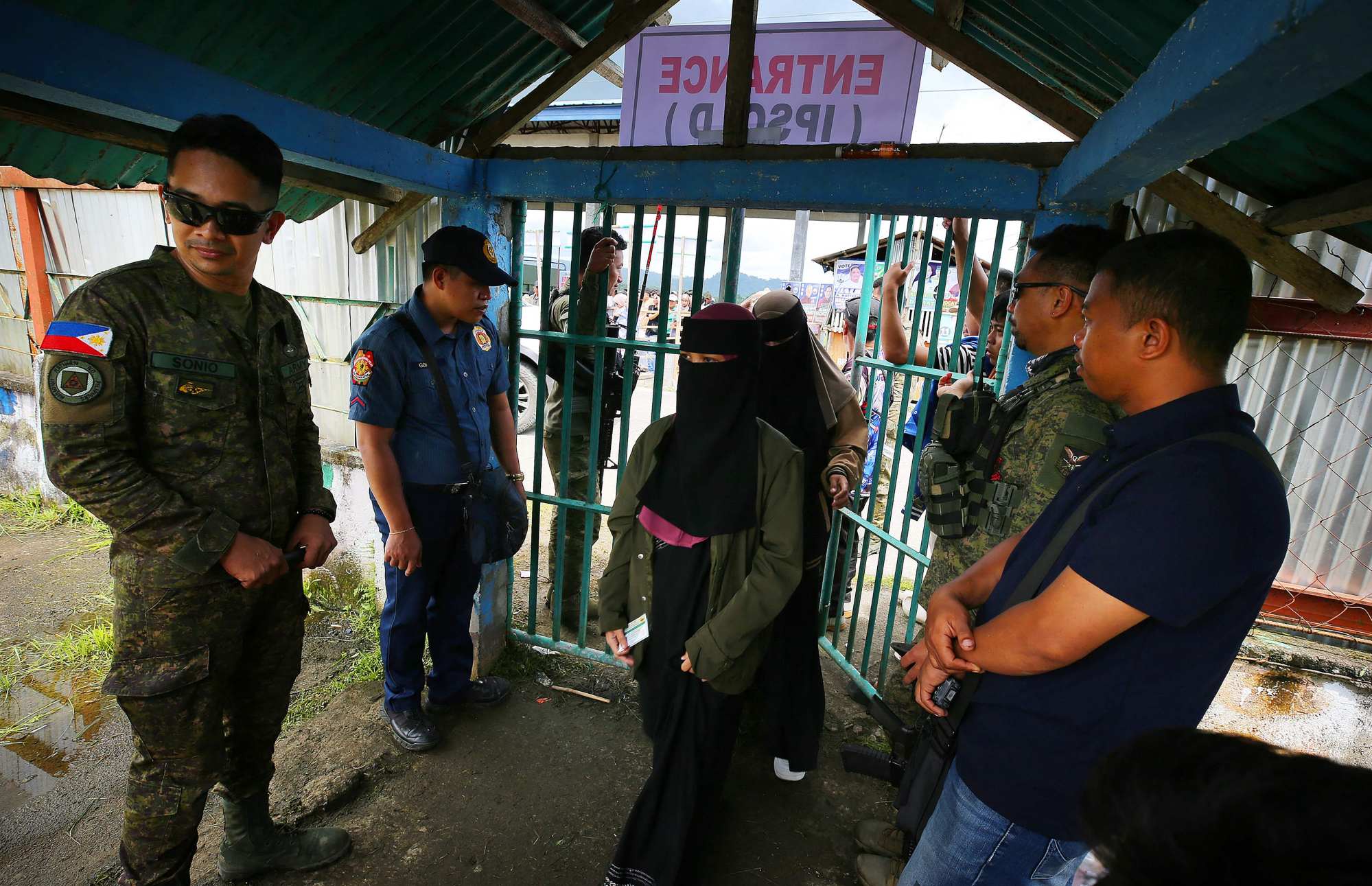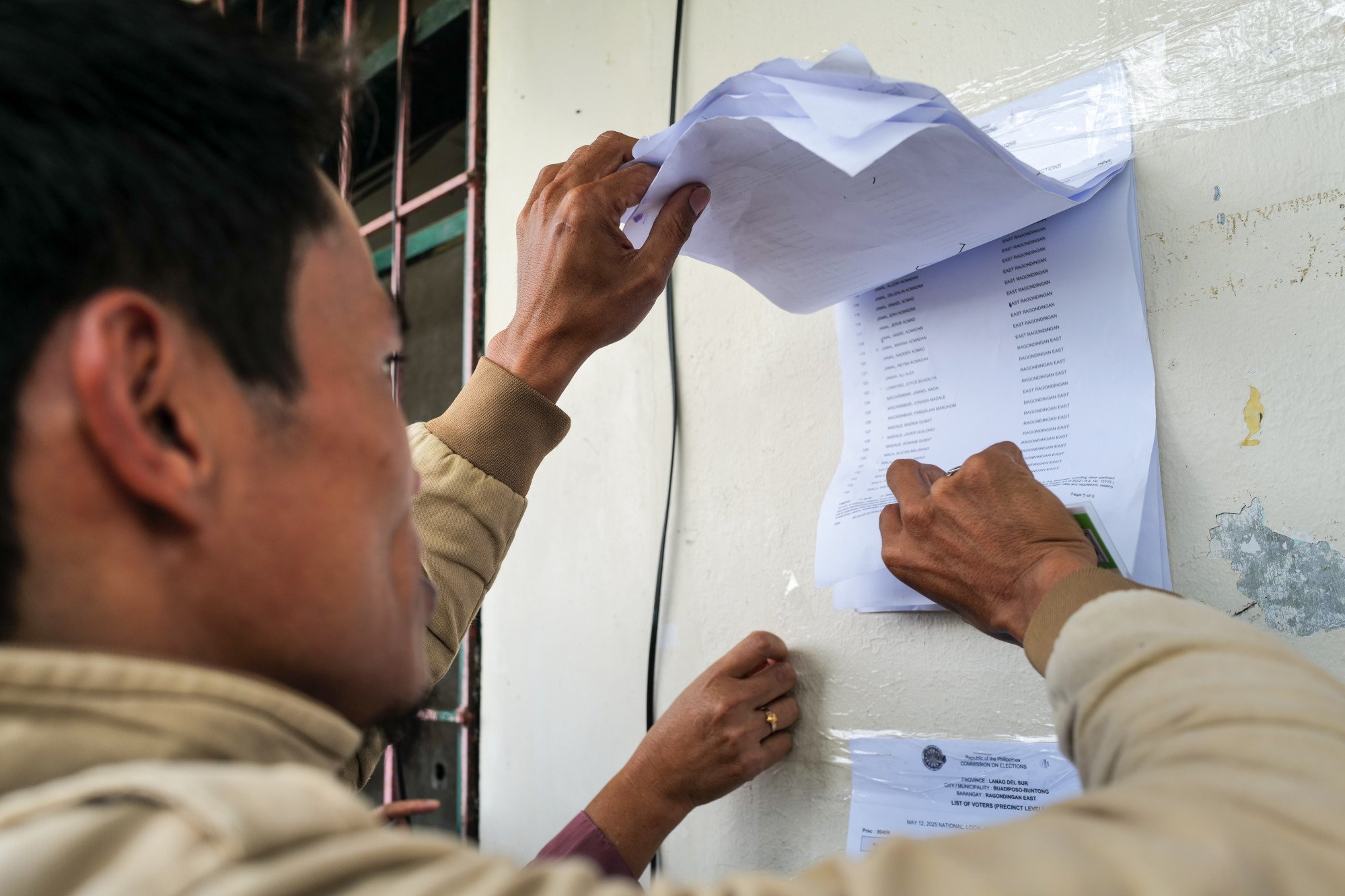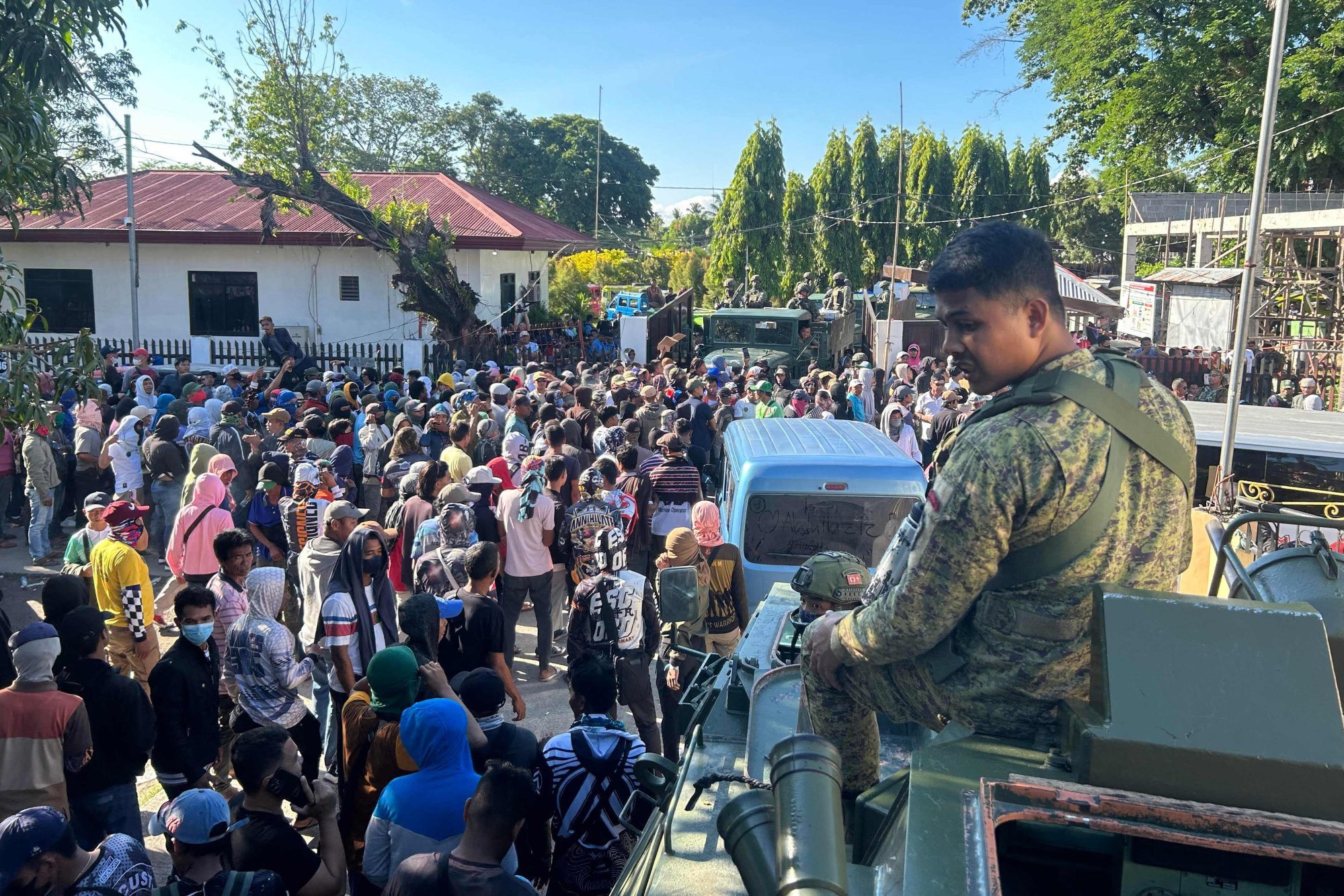Philippine midterm elections: violence mars voting in restive Muslim region
Observers report a surge in killings and voter intimidation across the Bangsamoro autonomous region in Muslim Mindanao

Violence marred midterm elections in the southern Philippines on Monday, with observers reporting a surge in killings and voter intimidation in Muslim Mindanao – an area long troubled by armed groups, clan rivalries and former separatist rebels.
The vote – which saw 68.6 million Filipinos elect senators, representatives and local officials – was particularly volatile across the Bangsamoro autonomous region, governed largely by former rebels from the Moro Islamic Liberation Front (MILF), where tensions have been rising in the lead-up to polling day.
Among the dead were a candidate for municipal councillor and his brother, gunned down at close range on their way to vote in Bayang town, Lanao del Sur. The victims, 38-year-old Afganie Balt Taha and 35-year-old Walid Balt Taha, were killed by unknown assailants, according to local police chief Captain Edmundo Nabor.
At a polling centre located on the border of Buadiposo and Ramain towns in Lanao del Sur, voters scrambled for cover shortly before noon as elite soldiers and police fired warning shots to disperse supporters of two politicians engaged in a heated dispute over alleged cheating.

Riots were also reported at voting centres in Sagonsongan village of Marawi City, and the nearby town of Saguiaran, after supporters attempted to delay the voting and a poll watcher was found in possession of a master list of voters – a practice prohibited by the Commission on Elections (Comelec).
In the town of Tagunan, under the Special Geographic Area of Bangsamoro autonomous region in Muslim Mindanao, gunmen disrupted the voting as clashes erupted between supporters of two candidates.
In Maguindanao del Sur, authorities captured 80 suspected “flying voters”, including minors, in Buluan town, after they allegedly admitted being paid to vote in the area despite being residents of other provinces, according to provincial police chief Colonel Ryan Bobby Paloma.
On the eve of the polls, residents of Kusiong village in Datu Odin town, Maguindanao del Norte, evacuated after spotting armed groups near the coast, close to a school where voting is set to take place.
A day before that incident, the military reported that two people were killed in a clash between armed groups in the town of Pandag.

The Council for Climate and Conflict Action, a non-governmental organisation, described the rising cases of election-related deaths in the region as a disturbing trend, confirming that it was the most violent election cycle in Bangsamoro’s recent history.
“We documented 239 deaths across the region since filing of candidacy commenced in October 2024. Of this number, 21 deaths have occurred since May 1, including five on election day itself, as of 12 noon,” Phoebe Adorable, the council’s programme manager, said in a release sent to This Week in Asia.
Maguindanao del Sur remains the deadliest hotspot, according to Adorable, with recent incidents and tensions concentrated in the towns of Buluan, Shariff Aguak, Pandag and Rajah Buayan.
These areas, she said, with long-standing strongholds of opposition clans – had witnessed fierce clashes between candidates supported by the former MILF and rival families, as some ex-rebel commanders had reportedly shifted allegiances in the lead-up to the elections.
In adjacent Maguindanao del Norte, the council reported Datu Odin Sinsuat remained virtually under siege: incomplete ballot deliveries, barricades by political party supporters demanding military and police as board of election inspectors, and continued postponements of voting.
“Despite claims that the MILF will be prevented from using and carrying their weapons in public, rebel commanders, including some members of the [Bangsamoro] parliament have been allowed to hold press conferences surrounded by hooded bodyguards carrying weapons and threatening armed attacks against their political rivals,” Adorable said.

In 2014, the MILF signed a landmark peace deal with Manila, trading its insurgency for autonomous governance in Bangsamoro.
However, the group has fallen short of its commitment to disarm after more than a decade later. Of the 40,000 fighters pledged for decommissioning, only 26,145 have laid down their weapons, leaving about 14,000 still active.
Despite the string of violent incidents, national police chief General Rommel Francisco Marbil downplayed fears of a failed election.
“We are not seeing that. As of now, it is ongoing and you will see that the enforcement of the armed forces, coastguard and, of course, the PNP [Philippine National Police], with the help of the Comelec is very strong,” Marbil said.
All police units nationwide had been ordered to secure the vote canvassing process, Marbil said, adding that police commanders were expected to strengthen security measures.